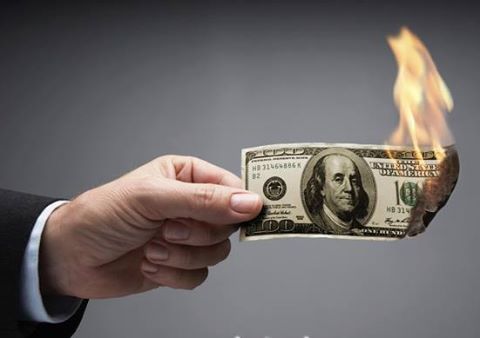The begining!
onelife·@salimch·
0.000 HBDThe begining!
Countries that goes cashless: Australia Citibank in Australia decided in November 2016 to get rid of cash at all its branches. This includes no cash machines. The decision was based on lack of consumer demand, as only 4% of its customers made cash transactions at a branch last year. Citi's head of retail banking Janine Copelin reportedly said, "This move to cashless branches reflects Citi's commitment to digital banking and we are investing in the channels our customers prefer to use." The same month, UBS analysts recommended that Australia phase out its AUD$100 bill, arguing that it would reduce criminal activity on the part of those who prefer to avoid a digital trail, and that increased deposits of the bill would create a type of forced savings for Australians. Belgium In Belgium, it's already illegal to buy real estate using cash – or indeed make any purchase in excess of 3000 euros in cash, with the exception of second-hand goods. Ecuador Don't assume that the most prosperous nations will be the first to go cashless. Ecuador, for example, has a real per capital GDP of only US $6,000 but in 2014, it became the world's first nation whose central bank introduced a virtual currency. Until then, Ecuador had no fiat money of its own; it has been using the US dollar as its currency since discontinuing the sucre (its national currency) in 2000. India Indian Prime Minister Narendra Modi has ambitions to move the nation toward cashlessness, partly in a bid to curb the underground economy. In November 2016, India's central bank took a step in that direction by banning the 500 and 1000 rupee notes. In a radio interview a few days later, Modi said, "I want to tell my small merchant brothers and sisters, this is the chance for you to enter the digital world." Kenya Many argue that the countries where it makes the most sense to have a cashless society are the ones with large unbanked populations (people with no personal bank accounts). Sub-Saharan Africa continues continues to account for the majority of live mobile money services. Of these nations, one of the most advanced is Kenya, which has seen great success with m-Pesa, a mobile payment system created by British telecom company Vodafone Group (VOD) in 2007. According to a 2015 GMSA report on Kenya, 59% of adult Kenyans have used mobile payments. With 26.2 million mobile money accounts and 12.5 million active mobile money users, Kenya now has one of the highest mobile money penetration rates anywhere in the world. Singapore Singapore has serious ambitions to lead Asia in going fully cashless. Hundreds of retailers have already adopted a "Sorry, No Cash" policy. The nation has one of the most bitcoin-friendly business environments in the world, opening the way for bitcoin funds to set up shop there – though "cashless" for most people will likely mean using ordinary credit or debit cards. In 2014, Singapore became one of the world's first nations to adopt "Fast," a 24/7 interbank fund transfer system. South Korea The Bank of Korea, South Korea's central bank, has plans to go cashless as soon as 2020, and adopt a national digital currency comparable to bitcoin. The plan is to phase out cash in steps, for example by having merchants give change to customers in the form of electronic credit, rather than in cash. The nation was one of the earliest to adopt virtual currency, in the form of video-game–based credits that took on the role of cash. In January 2010, the nation's supreme court made the landmark decision that gaming currency was to be recognized as convertible to cash. Sweden The first country in Europe ever to issue official banknotes (in 1661) could be the first in the world to stop using them. Currently, you can't buy subway or bus passes with cash in Sweden. According to the Riksbank, the Swedish central bank, only 20% of all store purchases in 2015 were made with cash. How did this happen? According to the Riksbank, it's due to a few factors: 1) a sparse population makes the distribution of physical currency relatively inefficient and costly; 2) there are only a few banks, making it easier for them to cooperate on streamlining payment systems; and 3) the society is tech-friendly. Source: newzchat.com